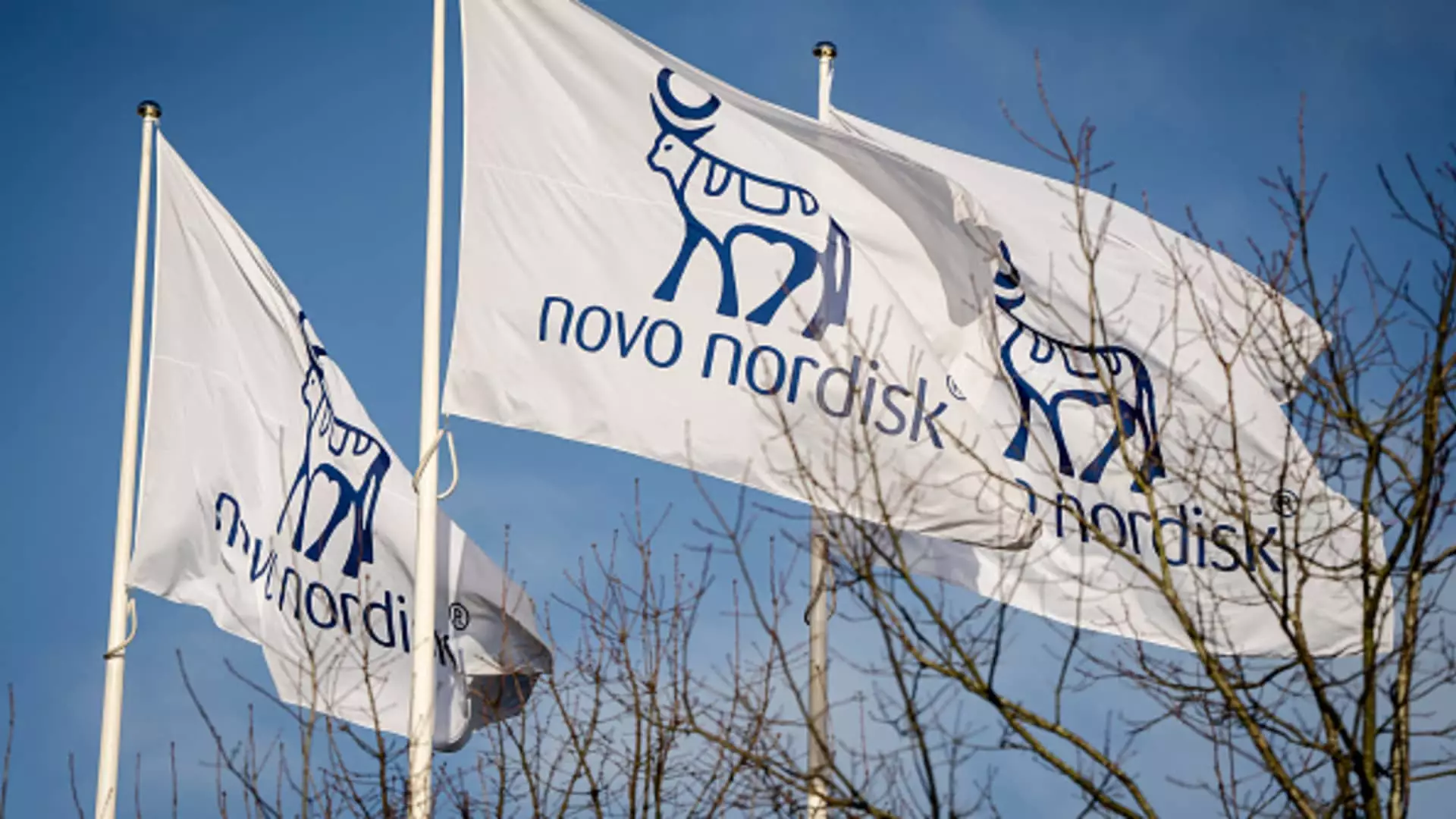In an age where chronic diseases such as diabetes and heart disease are alarmingly prevalent, Novo Nordisk has made headlines with the unveiling of new clinical data about its oral diabetes medication, Rybelsus. As reported at the American College of Cardiology’s Annual Scientific Session, Rybelsus appears to offer a striking 14% reduction in cardiovascular-related mortality, heart attacks, and strokes when compared to placebo over four years. This impressive outcome presents an intriguing solution for the millions of people caught in the vicious cycle of diabetes and heart health complications, marking a substantial step forward in managing their dual burdens.
Rybelsus is already recognized for treating Type 2 diabetes, but the potential for it to address associated cardiovascular issues is what truly sets it apart. The findings from the late-stage trial not only bring renewed hope for patients who battle injectable treatments but may also shift how healthcare professionals view the treatment spectrum for diabetes. At a time when patients’ preferences for less invasive treatment modalities are rising, the drug’s oral form opens doors to those who have long shied away from needles.
A Patient-Centric Approach to Diabetes Treatment
The importance of patient choice cannot be understated when it comes to managing chronic illnesses. Stephen Gough, Novo Nordisk’s global chief medical officer, emphasizes that not everyone is comfortable with injections, and Rybelsus provides a viable alternative. In a climate where the healthcare conversation is evolving towards a more patient-centered approach, it is vital that treatment options cater to individual preferences and lifestyles. This trend recognizes that the effectiveness of medication extends beyond clinical efficacy; it also encompasses adherence, comfort, and the psychological barriers associated with treatment.
By allowing for shared decision-making between patients and healthcare providers, Rybelsus may change the necessities of diabetes management. Offering both injectable and oral formulations presents a critical pathway for diversifying treatment options, greater patient engagement, and potentially better health outcomes.
The Rising Tide of Cardiovascular Risks
Cardiovascular complications in diabetes patients are an insidious threat that significantly increases the burden of disease management. Understanding that diabetes and heart disease are inextricably linked is vital for any progressive approach to treatment. According to the data presented by Novo Nordisk, Rybelsus not only decreases the risk of serious cardiac events but does so in a population already grappling with multiple health concerns.
The trial involving over 9,600 participants aged 50 and older noted that even with standard treatment regimes, the addition of Rybelsus led to significant improvements in cardiovascular health. Notably, the study recorded a 26% reduction in non-fatal heart attacks and a 12% reduction in non-fatal strokes. These statistics are not merely numbers; they reflect real lives impacted by the dual challenges of diabetes and cardiovascular risk, reiterating the critical need for innovative treatment options.
Implications for Future Drug Development
As this trial unfolds, the implications for other pharmaceutical companies looking to develop similar oral medications are clear. Novo Nordisk’s advancements spotlight a burgeoning market for oral GLP-1 receptor agonists in treating diabetes and associated conditions. With rivals like Eli Lilly entering the fray with their oral versions, competition may soon foster an era of rapid innovation aimed at meeting the diverse needs of patients.
This turning point signifies a shift from prevailing treatment paradigms toward a more integrated approach. Patients will likely see a slew of new options in the coming years that afford them greater autonomy over their healthcare journey, emphasizing more convenient, effective alternatives that facilitate adherence.
Side Effects and Practical Considerations
While the results are promising, they do not come without potential downsides. The common side effects reported among participants included gastrointestinal issues such as nausea and diarrhea. While these symptoms did not lead to widespread discontinuation of the medication, they reflect the complexities involved in diabetes treatment. The requirement that Rybelsus be taken on an empty stomach with a small amount of water adds yet another layer to the management strategy, which may leave some patients hesitant.
Even with these limitations, the data demonstrates that patients diligently adhered to the directive, showcasing that the benefits indeed outweighed the discomfort of side effects. In a healthcare landscape where effective treatment isn’t just a luxury but a necessity, understanding these intricacies will be crucial in the success of Rybelsus as it transitions into a more mainstream treatment option.
Rybelsus embodies a significant achievement in the field of diabetes treatment that not only combats blood sugar levels but also addresses the alarming cardiovascular implications associated with the disease. The evolution of diabetes management continues, and Rybelsus stands as a beacon of hope, forging a path towards a healthier future for millions.


Leave a Reply